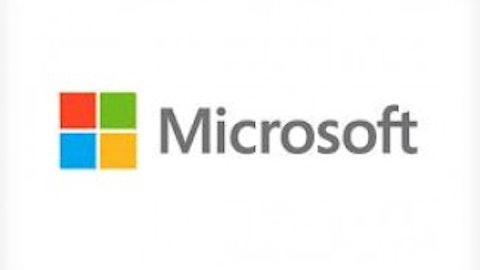First off, it makes sense for employees of a company to sell some shares of their stock. Because such a considerable portion of their income is already tied to its fortunes, principles of diversification suggest that they should avoid having a large share of their wealth in the same company. So it’s not necessarily a bad sign that Facebook Inc. (NASDAQ:FB) dropped 4% on unusually high volume on October 31st as a lockup period expired and allowed employees to sell shares. It could reflect pessimism regarding the stock price from insiders- but it could also reflect some shareholders “cutting their losses” as soon as possible following the roughly 50% decline from the IPO price.
The real question is whether or not Facebook Inc (NASDAQ:FB)’s platform can start becoming more attractive to advertisers. Customers were already beginning to lose interest in its product- GM, for example, had concluded that Facebook ads were not an efficient marketing expense- and now the situation is becoming more complicated as more of Facebook’s users shift to using the site on mobile devices, which is a completely new frontier in terms of determining how to create effective advertising. As a result, Facebook Inc. (NASDAQ:FB) has tried to hedge its bets by exploring other potential sources of revenue, such as the controversial “Promote” feature. Read our recent news articles about Facebook.
Facebook Inc. (NASDAQ:FB)’s revenue was up 32% in the third quarter of the year compared to the same period in 2011. Top-line growth was driven both by the U.S. (where revenue was up 22%) and in international markets, which at a 45% growth rate will likely pass the U.S. to become Facebook’s largest source of revenue in the near future. However, due to higher expenses- including a doubling in R&D, though most of the increase came in the form of share-based compensation- operating income was down 9%. Facebook now trades at 32 times its consensus earnings for next year.
Tiger Global Management and Tiger Consumer Management- both of which are Tiger Cub funds, obviously- were among the hedge funds which reported a position in Facebook Inc. (NASDAQ:FB) at the end of June. Tiger Global Management owned 2 million shares in its 13F portfolio (see more stock picks from Tiger Global) while Tiger Consumer Management had 1.6 million shares (find more stocks that Tiger Consumer Management was buying).
Facebook’s closest peers are Linkedin Corporation (NYSE:LNKD) and Zynga Inc (NASDAQ:ZNGA). Linkedin trades at a forward P/E multiple of 86- much higher than Facebook- and even this figure is based on very high earnings growth compared to what the company has been doing recently. Its revenue growth has certainly been very good, but we think that investors may be overestimating the company’s potential. Zynga, a social gaming company which draws much of its business from Facebook activity, is now down 77% from its December 2011 IPO and the most recent data shows that 27% of Zynga’s shares outstanding are held short. With the company barely profitable the last two quarters, we don’t think that it’s a good buy either.
We can also compare Facebook to Google Inc (NASDAQ:GOOG), whose Google Plus social networking offering has been underwhelming but is nonetheless a peer in the sense that it draws its revenue from monetizing its search engine traffic through ads, and to Groupon Inc (NASDAQ:GRPN). Groupon is another disappointing Internet IPO, down 84% from where it went public in November 2011. It sells discounts rather than advertising but, like Facebook, has had difficulty convincing its customers that it is actually creating value. While its revenue was up 45% in the second quarter of the year compared to the same period a year ago, profits have remained low. The sell-side thinks that earnings will be good next year, and Groupon trades at only 11 times forward earnings estimates, but we’d avoid the stock for now. Google disappointed investors in its report for the third quarter of the year, with earnings falling 20% compared to Q3 2011, as the company has not yet managed to make its acquisition of Motorola Mobility Holdings pay off for shareholders and pay-per-click rates have fallen as well. It carries a forward P/E of 15; we’d rather own it than any of these other Internet companies.
It’s smart for employees to be selling Facebook Inc. (NASDAQ:FB) stock as it helps them diversify, and while traders shouldn’t exaggerate the importance of that activity the stock does seem to still be trading a bit high for a company with such uncertain sources of business. Many other Internet companies also don’t look like good buys, but Google at least merits a closer look in our view.






